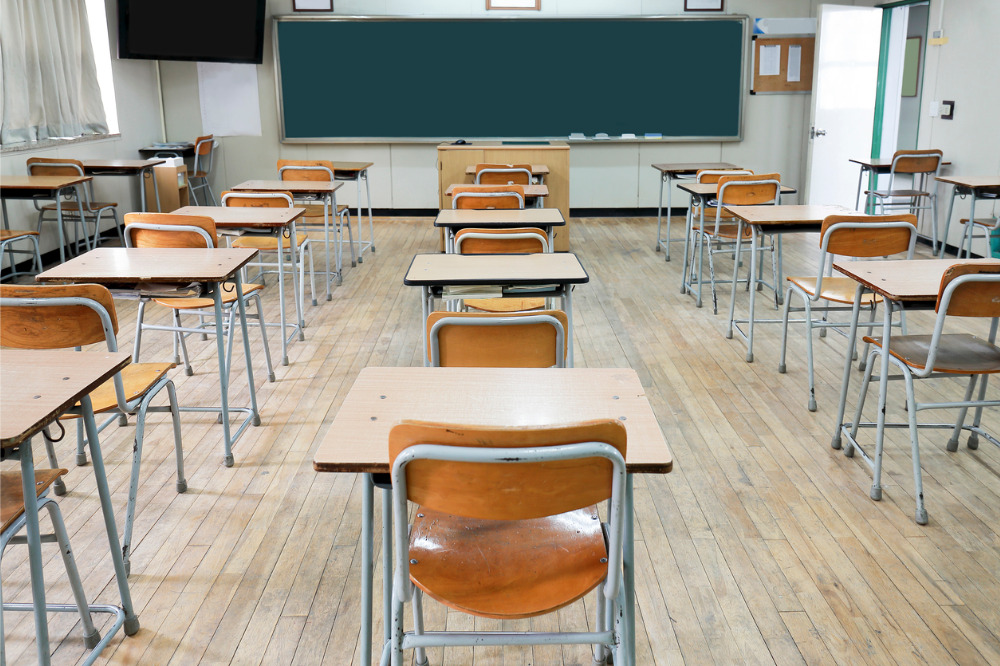
Today, Australian schools mark World Teachers Day, celebrating educators who have braved a global pandemic for the noble cause of enriching the lives and futures of young people everywhere.
Perhaps unsurprisingly, this year’s theme is 'Teachers: leading in crisis, reimagining the future', which reflects the commitment teachers have made as leaders within a range of environments.
Now that the vast majority of schools and universities have established a solid online architecture for remote and flexible learning to continue, the focus is turning to what has been learned and, perhaps just as importantly, whether the education system can afford to return to the traditional model in a very new kind of world.
‘Educators are now better prepared’
Andrew Pierpoint, president of the Australian Secondary Principals Association (ASPA) said that in the early stages of the lockdown, many teachers and school leaders prioritised the wellbeing of parents, students and staff over the learning component, both in and outside of school.
He said this was driven by a realisation that staff who are mentally healthy are not only more productive but happier and more collaborative.
“These stronger connections between schools and families mean that we’ll be better prepared for the next disaster, because this will happen again,” Pierpoint told The Educator.
“It might not be a pandemic, it could be a cyclone or a bushfire, so whatever it might be, these learnings are profound”.
Pierpoint said a recent national study – conducted by the Association and two researchers, Dr Amanda Heffernan and Dr Fiona Longmuir from Monash University – identified four important factors when it comes to preparing schools for the uncertainties of the future world.
“This included the rapidity of change and what was accomplished during the pandemic – and it bodes well for how we’ll cater for unexpected disasters moving forward,” he said.
“School leaders have always known that their staff are adaptive, caring and professional, but I really think this crisis has accentuated these qualities in a big way”.
‘Teachers deserve a loud and heartfelt thank you’
The Association of Heads of Independent Schools of Australia (AHISA) national chair, the Rev. Chris Ivey, said teachers have been heroic, and deserve a massive shout out and a loud and heartfelt ‘thank you’ on World Teachers’ Day.
The Rev. Ivey, who is principal of St Andrew’s Anglican College in Queensland, said he had heard many stories from his colleagues in AHISA of the dedication and self-sacrifice of teachers and school support staff during remote learning and on return to campus.
“The swiftness with which teachers adapted to remote learning, the long hours spent preparing material for online classes or learning-at-home packs, their willingness to rapidly learn new digital delivery techniques, their ingenuity and creativity in keeping students engaged and their ongoing care for individual students and their families have rightly been recognised and applauded during recent months,” Rev. Ivey said.
“It is also important to remember that many teachers have juggled caring for their own children at home while delivering classes remotely or have put their own wellbeing and the wellbeing of their families at risk for the sake of their students”.
He said this year has also shown that principals have noticed a deeper appreciation of teachers, from both students and parents.
“It is my hope that this new understanding of the work of teachers will translate into increased respect for teachers so that they, too, may have a brighter future in the profession”.
‘A collective effort will ensure students succeed’
Associate Professor Tony Loughland, academic director of professional experience at the UNSW (Sydney) School of Education, says that 2020 has provided “a real-world demonstration” of what the evidence shows: student achievement is based on collective efforts.
"The extraordinary challenging year of 2020 for teachers has highlighted the simple truth that a collective effort is the only way to ensure success for all our students," Assoc Prof Loughland told the Media Centre for Education Research Australia (MCERA) recently.
“Even the most heroic individual efforts of teachers (and there are so many) are not as effective as a faculty, a stage team, a school or an entire system working together”.
Assoc Prof Loughland said teachers’ sense of their collective efficacy is the second most important school-based influence on student outcomes.
“It has an effect size of 1.57 on student achievement according to Hattie’s 2017 synthesis of meta-analyses in education,” he explained.
“So, at the end of this most challenging and traumatic year for teachers, isn’t it about time that we put a lie to the myth that an individual teacher can be held solely responsible for their students’ academic results?”


